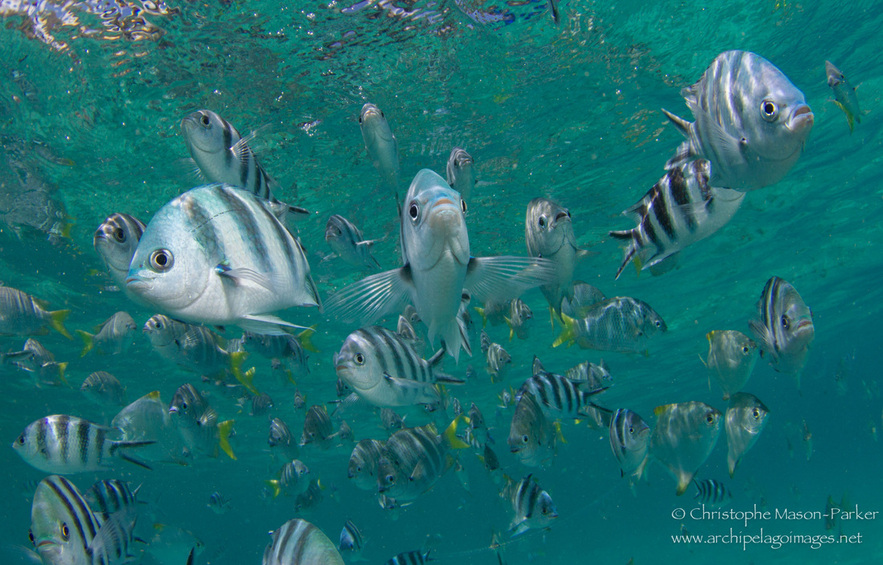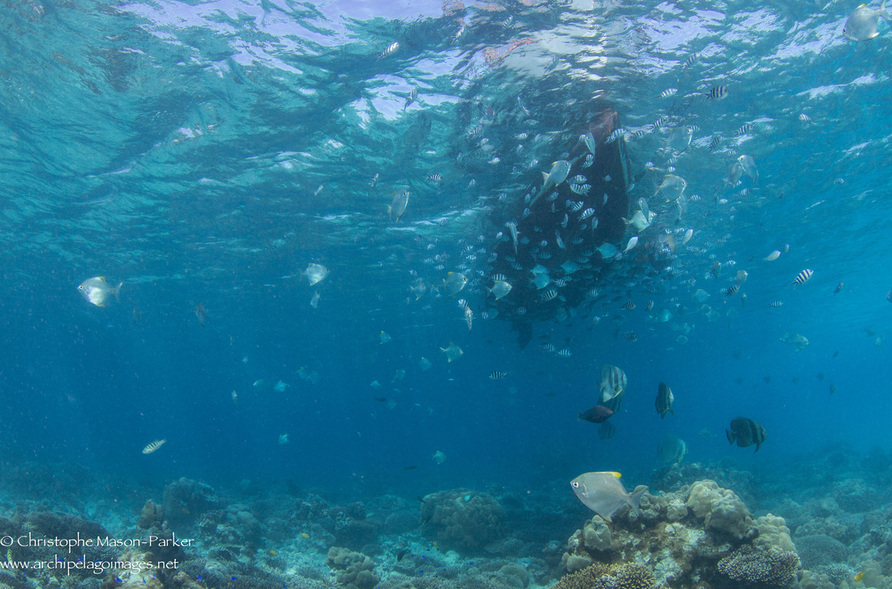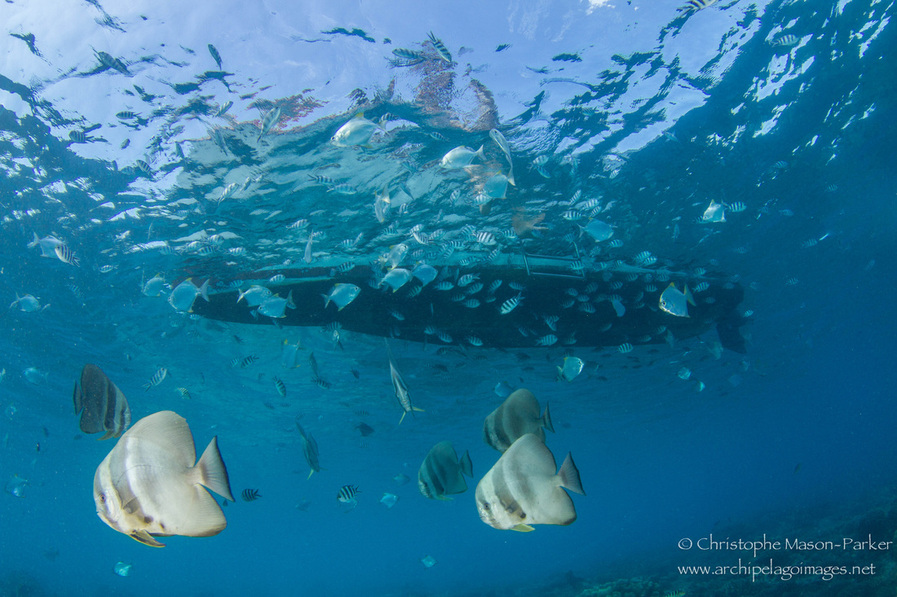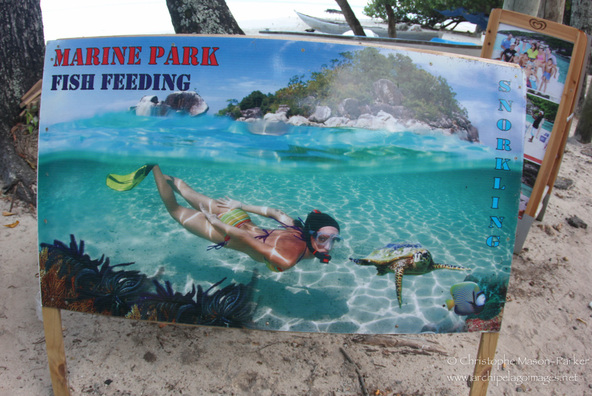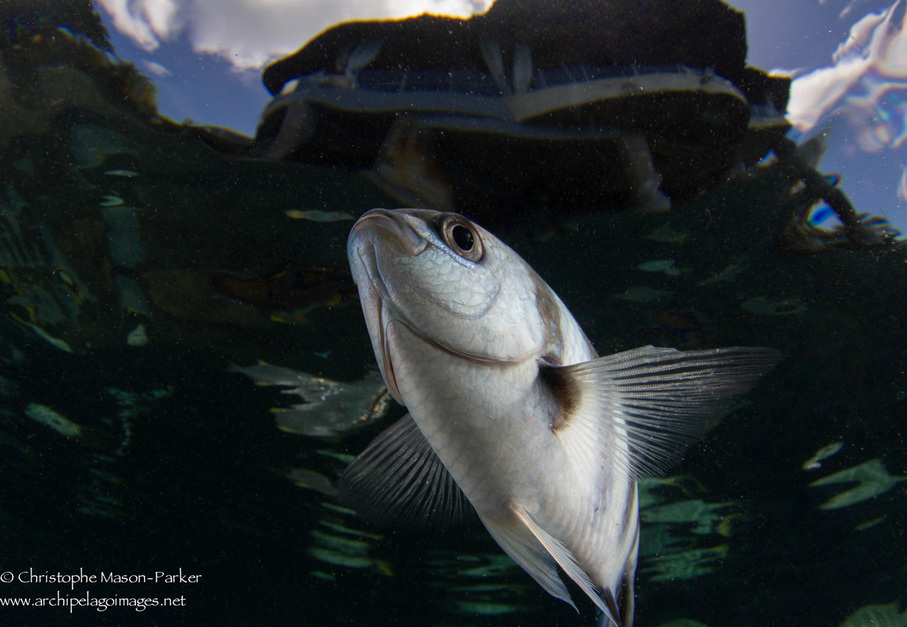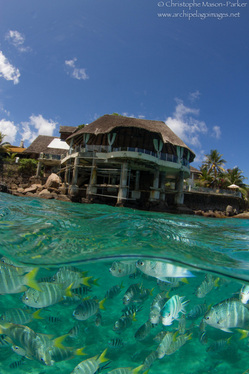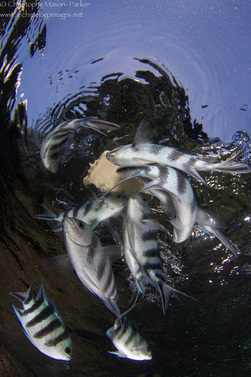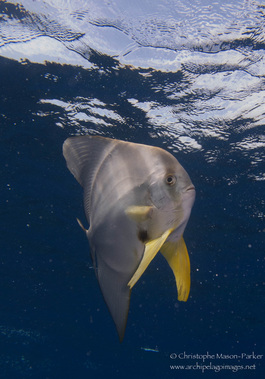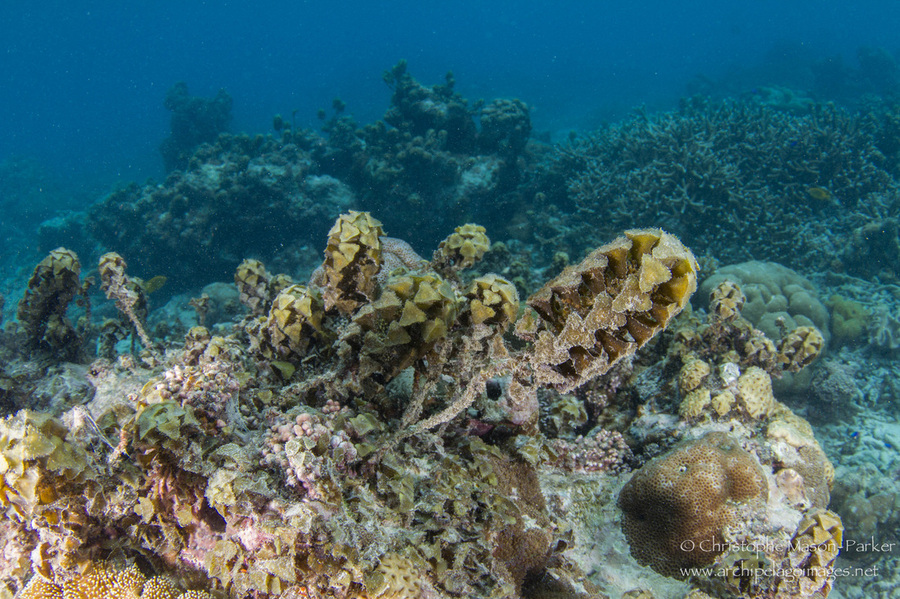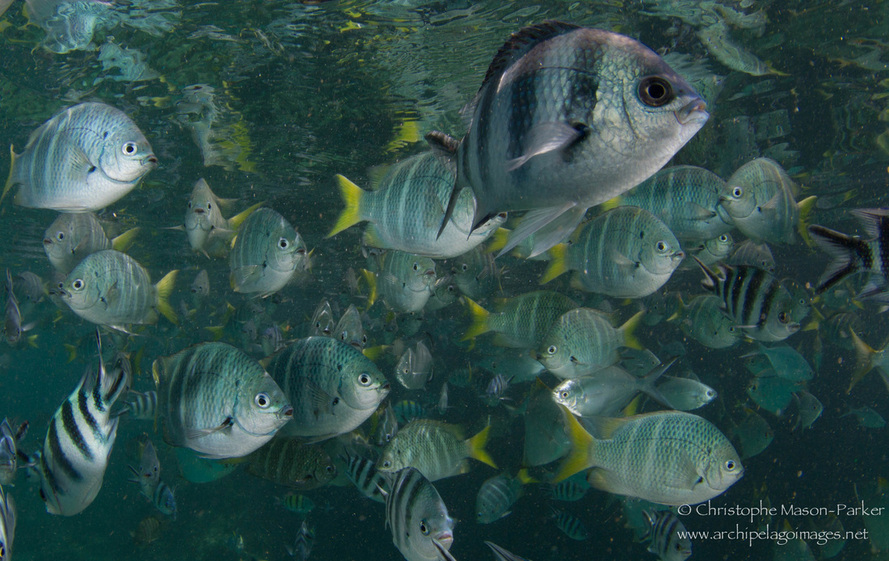Please do not feed the Fishes
Coral reef tourism is big business and contributes significantly to the economy of many tropical island nations. Boat excursions, snorkel trips and scuba diving all provide a means by which tourists can access these underwater environments. However, for some simply being close to nature is not enough and for years tour operators around the globe have sought to cater for a demand in ‘interactive experiences’. These range from well managed, conservation focused interactions to less than scrupulous and often extremely damaging operations.
At the perceived lower end of the scale is the seemingly benign and exceedingly common activity of hand-feeding fish. Everyone knows that if you throw a piece of bread into the water, whether it is at your local park or on the coast, it is likely to catch the attention of a passing fish. So what is wrong with that? The fish receives a free meal and is likely to attract the attention of others. Who does not enjoy the thrill of seeing dozens of fishes congregating at the surface in search of a handout?
At the perceived lower end of the scale is the seemingly benign and exceedingly common activity of hand-feeding fish. Everyone knows that if you throw a piece of bread into the water, whether it is at your local park or on the coast, it is likely to catch the attention of a passing fish. So what is wrong with that? The fish receives a free meal and is likely to attract the attention of others. Who does not enjoy the thrill of seeing dozens of fishes congregating at the surface in search of a handout?
A boat is surrounded by fishes conditioned to associate humans with food, they appear in numbers before any bread has been thrown into the water.
While some may be insouciant regarding the effects of hand-feeding fishes, most people don't realise that this rather innocuous activity can have severe implications for the health of coral reefs. Repeated tours to feed fishes at the same location can lead to a behavior called conditioning, where the animal learns to associate humans with food. This is great for the tour operator as they are guaranteed plenty of fishes for their customers to feed, and the customers are happy as they can interact closely with lots of fishes. The problem is conditioning of this sort may not be such good news for the fishes.
Tourists sign up to fish feeding excursions, often unaware of the pernicious nature of the activity.
The scissortail sergeant (Abudefduf sexfasciatus) feeds on zooplankton and algae. Regular hand-feeding of bread and other processed foods can cause the fish to become satiated quickly and reduce its desire to feed naturally. Batfish such as Platax teira feed on zooplankton, invertebrates and algae, and like the sergeants require these food items to remain healthy.
Different species of fish have evolved specialized feeding habits and require various nutrients available as part of their natural diets. The most common food item provided for hand-feeding fish is bread, though biscuits, cake and all manner of processed foods are also used. Needless to say these items do not include the requisite amino acids that are vital to the animal’s health. Secondly, fishes are programmed to feed at certain times of the day and hand-feeding interferes with their natural cycles. Studies have shown that fishes that have been hand-fed over a long period of time are less competitive than those that have not. The breakdown in competitiveness leaves fishes more vulnerable to predation, altering the delicate balance of the ecosystem.
Hand-feeding does not simply affect those fishes that are being fed, but has implications for the wider marine environment. Coral reefs rely on grazers to keep the amount of algae in check. By providing a supplementary food source through hand-feeding, fishes may become satiated quickly, leading to a reduction in the amount of algal grazing. Over time in areas where hand-feeding regularly occurs, an increase in algal growth will outcompete corals leading to a possible phase shift in the reef environment.
Hand-feeding does not simply affect those fishes that are being fed, but has implications for the wider marine environment. Coral reefs rely on grazers to keep the amount of algae in check. By providing a supplementary food source through hand-feeding, fishes may become satiated quickly, leading to a reduction in the amount of algal grazing. Over time in areas where hand-feeding regularly occurs, an increase in algal growth will outcompete corals leading to a possible phase shift in the reef environment.
An algal dominated reef environment.
While it may seem like a harmless activity, the hand-feeding of reef fishes can have far reaching implications. For Marine Protected Areas in particular, which have been set aside to protect biological integrity and to act as sources for the recovery of adjacent reefs, it is crucial not to interfere with natural biological processes.
